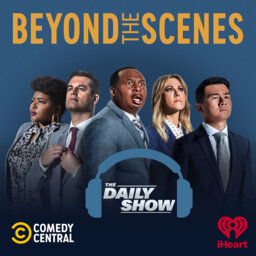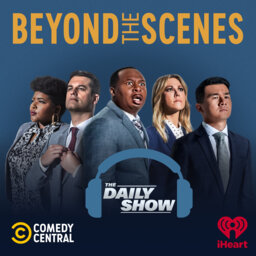Black Superheroes Deserve the Space to Make an Impact
Superheroes inspire us and help us believe we can do all that we set our minds to. Black superhero stories, however, don’t always reach mainstream audiences, leaving young Black children few characters to identify with. Host Roy Wood Jr. sits down with Daily Show writer, Ashton Womack, Beyond the Scenes senior producer, Aaron Lamarr Burleson, and contemporary artist, Hebru Brantley, to discuss how Black superhero stories have more capacity to bring authentic Black experiences to the big screen.
Watch the Original Segment:
https://www.youtube.com/watch?v=jx3ErVQmXKc
Link to purchase Hebru Brantley’s coffee table book: https://www.amazon.com/Hebru-Brantley/dp/084787219X
In 1 playlist(s)
Beyond the Scenes from The Daily Show
Imagine The Daily Show, but deeper. Host Roy Wood Jr. dives further into segments and topics covered…Social links
Follow podcast
Recent clips

The Battle Over Critical Race Theory (featuring Kimberlé Crenshaw)
1:06:27

Female Orgasm Onscreen: A Brief Hist-HER-y
36:51

Esports: The Rise of Professional Video Gaming
45:57
 Beyond the Scenes from The Daily Show
Beyond the Scenes from The Daily Show